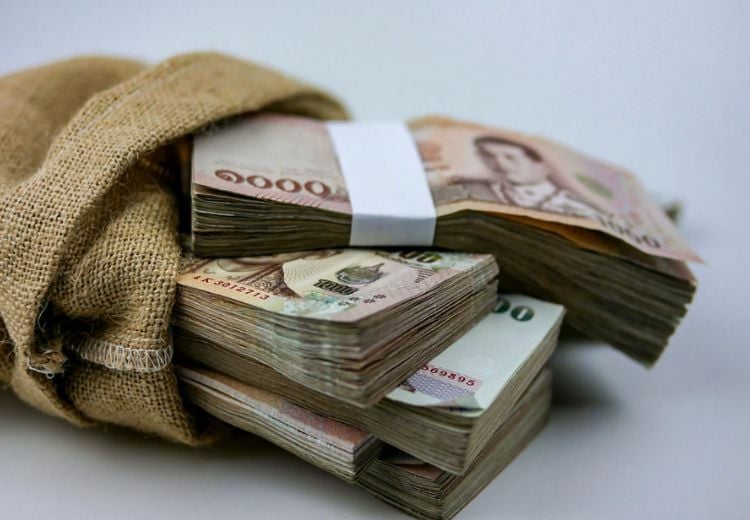Baht hits two-week high but faces long-term depreciation risks

The Thai baht surged to a two-week high yesterday, surpassing 36.5 to the dollar, marking a strong short-term gain. However, Kiatnakin Phatra Financial Group (KKP) has issued a cautionary note about the potential depreciation of the currency, attributing it to persistent structural issues in Thailand’s economy.
Yesterday, the baht led gains among Asian currencies, appreciating by 0.3% to its highest level since May 23, while the Singapore dollar followed with a 0.2% rise.
This latest rally saw the Thai currency trading at 36.69 baht to the US dollar on Wednesday, a notable improvement from its May 30 low of 36.9 baht.
Head of research for the banking and financial sector at Kasikorn Research Center (K-Research), Kanjana Chockpisansin, attributed the baht’s significant overnight strengthening to profit-taking of dollars ahead of crucial decisions by the European Central Bank and the upcoming Federal Reserve meeting.
“The baht could even strengthen past 36.5 to the dollar for a short while, but we remain firm on the near-term forecast of 36.5-37 baht as key economic factors haven’t changed much from what we saw earlier.”
Since the start of the year, the baht has weakened by 6.35%, with similar declines seen in other Asian currencies such as the yen (9.39%) and the Korean won (6.19%).
The Philippine peso and Indonesian rupiah have also depreciated by 5.61% and 5.47%, respectively.
Continued weakening
KKP has projected a continued weakening of the baht against the dollar, citing Thailand’s structural economic issues as a significant factor. The financial group asserts that the likelihood of the baht returning to its pre-pandemic level of around 30 baht per dollar is slim.
The depreciation of the baht this year has been largely driven by the rising value of the dollar, fuelled by aggressive comments from the Federal Reserve concerning US interest rates.
They emphasised that Thailand’s structural economic problems are putting downward pressure on the baht.
“We are concerned the baht will stay on a depreciation trend against the greenback permanently. The local currency cannot move back to the pre-pandemic level of around 30 baht to the dollar, similar to the experience of Malaysia’s ringgit.”
According to KKP, Thailand’s current account has continued to decline post-pandemic, affected by decreasing export competitiveness and low energy security levels.
The Bank of Thailand’s recent economic update indicated that the baht’s depreciation in April was influenced by external factors, including shifts in market expectations regarding the Federal Reserve’s anticipated interest rate cuts and concerns over escalating conflicts in the Middle East.
In April, the currency averaged 36.77 baht to the dollar, down 3% month-on-month, before strengthening to 36.61 baht against the greenback in May, reported Bangkok Post.
Latest Thailand News
Follow The Thaiger on Google News:


























